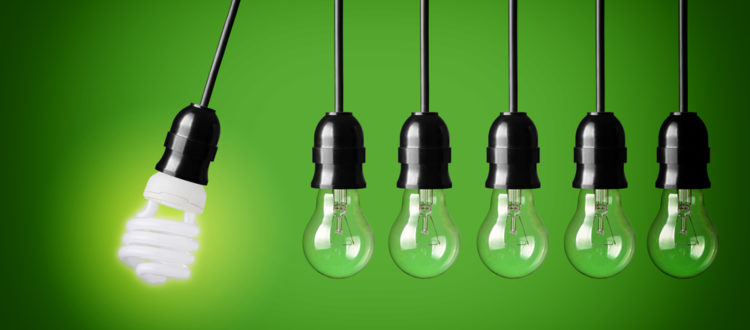Energy Efficiency Myths Debunked!
Sometimes, we get so caught up in trying to be energy efficient that it is easy to try energy saving advice without thinking too critically about it. As a result, there are many myths about energy efficiency that exist today, even though they don’t get results.
Myth #1: It costs more energy to turn your lights off and on than it does to simply leave them on throughout the day.
This line of reasoning used to be true in the past, when light bulbs took as long as five minutes to turn on. However, that time is now under a second for modern light bulbs. You’ll still enjoy the convenience of a well-lit room, but just know that leaving that light on all day long is not saving you energy!
Myth #2: Leaving a ceiling fan on will keep your room cold.
During a hot summer day, you might be tempted to leave your ceiling fan running all day long to keep your room constantly cold. However, unless you are in the room and enjoying the breeze created by your fan, then you are wasting energy!
Ceiling fans create their cooling using the wind chill effect, the same phenomenon that can make the winter feel even colder when the wind is blowing strongly. That is to say, fans only make your body feel cooler when they blow air on you. Therefore, if you aren’t in the room to enjoy the breeze, then the energy used to power your fan is entirely wasted.
Myth #3: Turning your thermostat up or down several degrees at a time will cause it to “work harder and faster.”
The thought process goes something like this: Your thermostat will act sluggish if you only adjust the temperature by one or two degrees. However, if you make a large change (say, 5 degrees or more), it will be forced to get to that temperature quickly and, as a result, you’ll enjoy your desired temperature sooner.
This is simply not the case. In fact, changing the thermostat won’t increase the speed at which your home’s temperature changes. What it will do, though, is cause your HVAC system to run longer and consume more energy as it attempts to make a large change in your home’s temperature.
Myth #4: Electronics do not consume energy when they are switched off.
This is not necessarily true. There are many electronic devices (we like to call them energy vampires) that continue to suck power even when they are turned off. Generally, these devices drain power to keep a small light functioning or on some other background process.
You can limit the impact energy vampires have on your energy bill by plugging all of your devices into power strips. Once you leave a room, turn off the power strip in that room to ensure that no extra energy is being wasted while you are gone.
Check out the rest of our Bright Insights blog to learn more about energy efficiency and the benefits of renewable energy!

